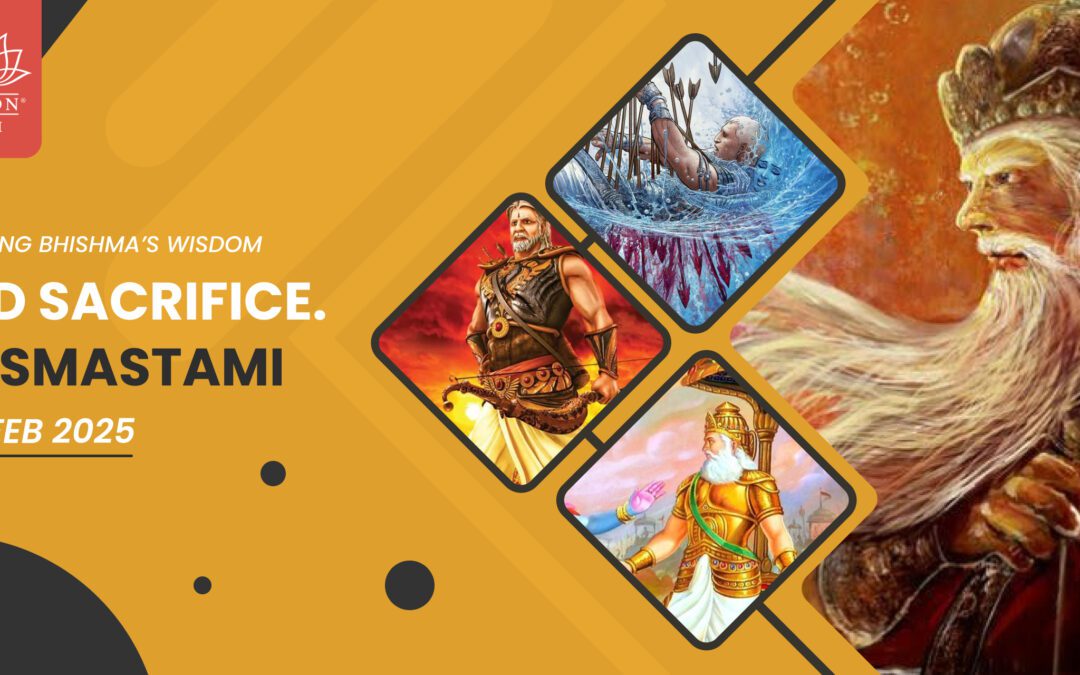The Life and Legacy of Bhishma: A Tale of Sacrifice and Devotion
Bhishma, one of the most revered characters in the Mahabharata, was born as Devavrata to King Shantanu of the lunar dynasty and the celestial river goddess, Ganga. Devavrata was the human embodiment of Dyo, one of the Ashtavasus, who was cursed to be born as a mortal due to a transgression. The story of his birth is intertwined with divine interventions and past-life connections.
When Ganga incarnated on Earth, she roamed the forests near the Ganga river, waiting for the destined moment. Around the same time, King Pratipa, Shantanu’s father, was performing austerities near the Ganga. Ganga appeared before him and sat on his right thigh. When she expressed her desire to marry him, Pratipa explained that the right thigh is reserved for a daughter-in-law, thus predicting her future union with his son, Shantanu.
Ganga raised Devavrata in the forest, ensuring he received the best education under the guidance of the sage Vasishtha. The boy grew up mastering various arts, scriptures, and warfare. At the age of thirty-two, Ganga returned Devavrata to Shantanu, fulfilling her promise.
The Name of Bhishma
Devavrata was soon anointed as the crown prince of Hastinapur. However, a new challenge arose when Shantanu fell in love with Satyavati, the daughter of a fisherman. Satyavati’s father laid down a condition for their marriage: only her sons would inherit the throne. Shantanu, bound by his duty and love for his firstborn, found himself in a dilemma and withdrew into grief.
This solemn pledge, known as the “Bhishma Pratigya,” astounded everyone, including the gods, who showered flowers upon him. It was this unwavering commitment that earned him the name “Bhishma,” meaning one who undertakes a terrible vow.
Shantanu, deeply moved by his son’s sacrifice, bestowed upon him a unique boon: Bhishma would have the power to choose the time of his death, making him invincible until he willingly relinquished his life.
The Legacy of Bhishma
Bhishma’s life was defined by his devotion to duty, loyalty, and selflessness. His celibacy and sacrifice for the greater good exemplify the highest ideals of dharma. As a key figure in the Mahabharata, Bhishma played an integral role in the Kuru dynasty’s saga, guiding successive generations with wisdom and foresight.
His life teaches us the importance of self-sacrifice, adherence to principles, and the courage to make difficult decisions for the greater good. Bhishma remains an eternal symbol of dedication and righteousness, inspiring countless generations to walk the path of dharma.

